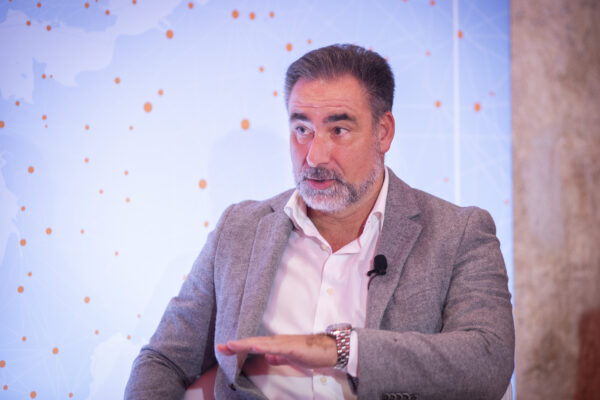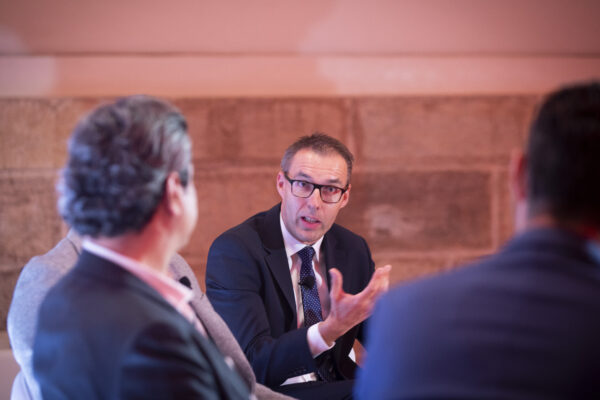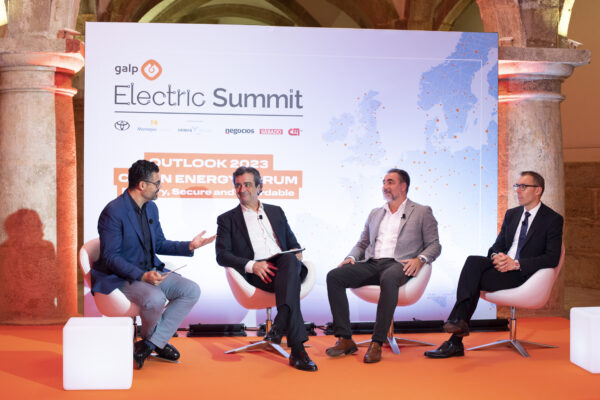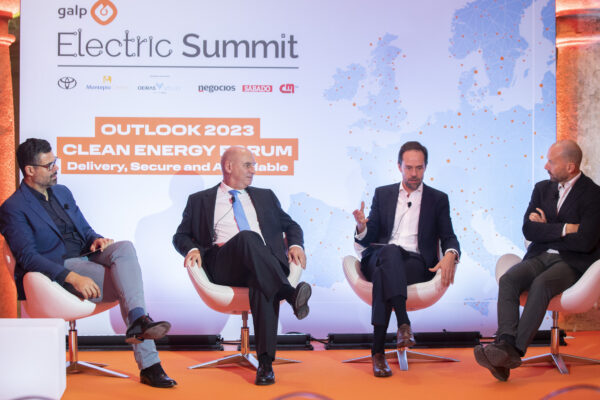“We want to lead the way on green hydrogen”
Galp is committed to being a major player in the new sustainable economy, and has plans on several fronts and various different initiatives already underway, and the company strategy includes transforming Sines from a “grey refinery” to a “green energy park”, launching the first worldscale biofuels project, using solar energy and investing in the new lithium sector.
The world is weaning itself off fossil fuels and switching to green energies, exerting pressure on companies which have this raw material at their core. Andy Brown, the CEO of Galp, regards this as “an enormous and dramatic challenge, but Galp sees in this an opportunity for us to be part of that future. So we set out a new purpose: let’s regenerate the future together. And it’s about reshaping our portfolio, but it’s also about our relationship with society and government”. Andy Brown was speaking at the ‘Portugal Energy Conference’, an initiative organised by Negócios, Sábado and CMTV about the future of energy, held on 8th June in Lisbon.
The CEO emphasised that the oil company is changing and taking action on several fronts of the sustainable economy, where the company wants to be involved and even take the lead. “We want to transform Sines, and take it from a grey refinery to a green energy park. This will require a number of measures. The first will be within a year. We want to launch the first worldscale biofuels project, called the HVO Project. This will provide renewable fuels. We want to be a leader in green hydrogen.”
Galp has one megawatt electrolyser (apparatus which can produce hydrogen by splitting water molecules into hydrogen and oxygen) under construction, and is gearing up to develop a 100-megawatt electrolyser. “The largest electrolyser in Europe has a 20-megawatt capacity, so this is a worldscale electrolyser.” The company is also working with partners on another 100-megawatt installation and evaluating the opportunity to produce e-fuels (synthetic fuels) for the marine and aviation sectors. According to Andy Brown, “Our ambition for 2030 is to get to 1GW of production capacity. But for hydrogen solutions to be economic, that needs to be competitive renewable electricity, and Portugal has the opportunity, given its location, to really capture that opportunity.”
Galp also has its eyes set on other aspects of the new energy system, namely production of the minerals required for electric vehicle batteries and solar panels. In this area, “Galp has partnered with Northvolt to do lithium conversion, taking the raw materials from the ground. And so we have the project that we are working on, in the 50%/50% joint venture, Aurora, that we would like to sanction by the end of next year for up to 35 kilotons of lithium hydroxide. About a 700 million euro investment. We have selected Setúbal as the prime location to build that facility, which we hope is just the start of the opportunity to build up a battery value chain business for Portugal.” Galp’s CEO also points out that the world demand for lithium will be sixfold by 2030, and copper demand will double by 2035. “Today there is no lithium hydroxide manufacturing facility anywhere in Europe. So this is a real first for Europe, as well as being really important for Portugal.”
In its commercial business, Galp wants to expand its EV charging network. He goes on to say, “We are the leader in Portugal today. We have around 1300 charging points. We want to double that every year to get to 10,000 by 2025, in Spain and Portugal.”
Galp Solar is also forging ahead and has already installed 5000 solar panels on roofs, and the company’s order book is overflowing. You will recall that the aim of the European REPowerEU programme is to increase this source of energy. Andy Brown says, “we need to expand that business very fast to meet the demand that is coming at us. We want to increase our renewable electricity cells by double.”
Addressing the crisis which is wreaking havoc in the world and particularly in Europe, he adds, “The crisis came ahead of the war, and came because of structural under-investment in oil, gas and the alternative energies. The war has clearly compounded that challenge.” We have to move forwards, and must not go back to environmentally damaging solutions. “Galp was the first international oil company in the world to suspend uptake of Russian products, a week after the start of the war. But what you’ve seen in Europe is that one of the responses to the lack of gas has been the growth of coal consumption – not in Portugal -, but clearly this is not a response that will be sustainable, so we have to find the alternatives.”











